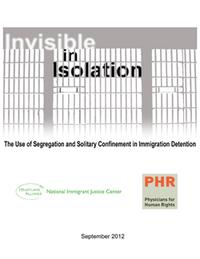Galarza v. Szalczyk
September 28, 2012
In December 2010, the ACLU of Pennsylvania and the ACLU Immigrants’ Rights Project filed suit in an Allentown, PA federal court on behalf of Ernesto Galarza, a New Jersey-born U.S. citizen of Puerto Rican descent who was held illegally for three days in the Lehigh County Prison. Immigration and Customs Enforcement (ICE) agents ordered his detention on the erroneous premise that he was an undocumented immigrant from the Dominican Republic.In November 2008, Mr. Galarza was mistakenly swept up in a series of drug arrests by Allentown police aimed at, among others, the construction contractor for whom he worked, an immigrant from the Dominican Republic. Mr. Galarza, who had nothing to do with the crimes, was jailed at the Lehigh County Prison along with other arrestees. He was later acquitted of any wrongdoing. Though he posted bail the next day, Mr. Galarza was not released because ICE had issued an immigration detainer against him, directing prison officials to hold him while it investigated whether he could be deported to the Dominican Republic. Mr. Galarza’s Social Security card and Pennsylvania driver’s license were in his wallet at the time of his arrest and in the prison’s possession during his detention. Galarza was not told why he was being held for nearly three days.
Our lawsuit argues that by jailing Mr. Galarza as an unlawfully present immigrant without even notifying him, officials from ICE, the Lehigh County Prison and the Allentown Police Department collaborated to violate his civil rights. On April 2, 2012, the district court granted in part and denied in part the individual defendants’ motions to dismiss, holding that local police investigator who called ICE and ICE agent who issued the detainer could be held liable for violating Mr. Galarza’s rights under the Fourth Amendment and the Equal Protection Clause. The litigation is ongoing. In addition to the ACLU, Mr. Galarza is represented by Kairys, Rudovsky, Messing & Feinberg LLP and Seth Kreimer, a professor at the University of Pennsylvania Law School.
News
12/1/10 ACLU-PA Files Suit On Behalf Of US Citizen Illegally Detained By ICE for Three Days

